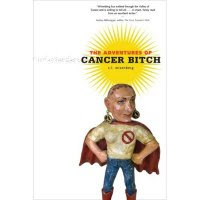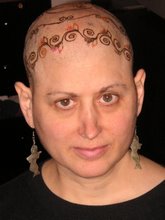Friday night I dreamed of N, a long-ago beau-of-the-moment. In the dream he was in a first-year class I was teaching, 22 students, huge room, bad acoustics, no one paying attention and I hadn't finished grading papers from the week before. In real life, N is a big deal in Washington. He has 17 thousand Twitter followers. That is how we measure importance. I have eight or nine followers but hardly tweet. He was a brilliant 19-year-old, he could talk about the world and wanted to talk about it. He had an ideology, same as mine, so of course I respected it. He is no longer broadly insouciant. At least the tweets going out to his 17 thousand followers are not. They toe the line. They inform. They celebrate information without including analysis by an ideologue, of any stripe.
He has Gone Places.
His tweets are from his Public Self.
I knew him before he had much of one.


Saturday morning J, a very bright friend from the 1980s, was suddenly on MSNBC, being sincere and emphatic and patriotic and not insouciant, as he too once was. Resilience is an overused word but it's the right word, he said. I was in Alabama anonymously watching J on TV and looking at a picture of N online and reading his mainstream gung-ho tweets. I was in Selma arriving late at gatherings and collecting people's stories. No one in the public sphere listening to me. Me taking and saving the words of others, fuzzily, on my phone and in my notebook, the same kind of black and white marbled cardboard that I used for my first book of poems, written in second grade, never published. I did not know I was brilliant. I wasn't. I was smart. Bright. I am collecting stories and hearing people tell me about hearing god's voice, hearing what must be done, people knowing and healing without a license. Everyone down here speaking of signs, of flashes, of decisions and knowing, corroboration. A woman I will call A leads others poetically but harshly, in the dark, to replicate the Middle Passage, to replicate the worst that can be done, deracination, families torn asunder, de-personalization, and for what? Not for empathy only, to learn what it was like, to re-enact the slave capture and voyage, but to learn what evil feels like, the exact scar of it, damage of it, that unites with the wounds we all have. A told me that a white man resembling Archie Bunker came to her tour and afterward he said he had been friends with two black boys when the three of them worked in a restaurant in college or high school. The cook who was white didn't like the cross-racial friendship and to divide them he said: Here's a steak plate and two chicken plates, you (Archie Bunker), you decide who eats what. I was thinking he would cut the steak in thirds and the chicken in half. But he did not. He came upon the age-old solution of rhyming: Eenie meenie miney mo, he started, and proud of himself because at the end of the impartiality his friend was rewarded the steak. The two were flabbergasted. Do you know what you said? Yes, eenie meenie miney mo, I let the old rhyme decide, not the racist man who was trying to divide and conquer. But do you know what you said? Say it and he did and he heard himself, ... catch a n---- by the toe. And as an adult during debriefing after the tour and the entry into the light he recounted this and cried.
Leon Blum, premier of France who was hated, for being a liberal and a Jew, said that when he and his brother wanted to split an apple their mother would have one son cut the fruit and the other choose which half to eat.
The healer, A, said she one day was crying on the bus, in Chicago, coming home from the doctor who said she would not be able to have children and a big black man, she did say black, she is black too, he sat next to her, his big bummy unwashed self and told her she would have a child. He touched her shoulder. This was a good thirty years ago, at least 36, because that is the age of her daughter.
In high school the drama students were not singing Jacques Brel with enough depth and force in the rehearsal and the teacher, she of a dozen toes and often-sandals, and six-foot height, she told us to scatter in the auditorium, even the technical crew members such as myself, to close our eyes and imagine that everyone we loved had left us. We were alone, everyone was gone from our lives, we were nothing in nothingness, sadness filling our emptiness, we sat heads curled inward imagining, and there was silence then sniffles perhaps sobs and empty time passing until she gave us the cue, did she play the music? she began and we began, eyes open, walking toward one another, joining hands on the stage (we were friends anyway or friendly, some more than others, there were rumors there had been an orgy one weekend, no one would tell me exactly what they'd done) that Saturday or Sunday afternoon in the auditorium when the school was closed, but I was here for this as we came together on stage with no audience but ourselves watching and listening to ourselves, me knowing well the paint cans and brushes and wood frames and canvas rolls in the wings and little rooms tucked away backstage, we came together, we began singing, If we only have love. The translation of Flemish singer Jacques Brel from the French. If we only have love we can heal those in pain. And the something desert earth will grow green again. The drama teacher led us to the depths and out again then to repair, healing, for the sake of art. To deepen the artistry of teenagers, some of whom became stars of regional theater and others not. But like the song that came out years later about the high school drama teacher who instructed students in their imagining--I felt nothing.
During that season of Jacques Brel a senior boy named Y sang Brel's Port of Amsterdam, about rough sailors and whores, a dark European song, in the middle of a pep rally. I don't think anyone laughed.
If the French hated Leon Blum so much, how was he elected? He was hated too in a privileged concentration camp because he was so jolly. Mendes-France I think was his cell mate.

The damaged men the two damaged men, brothers, one shot, the other in the hospital found hiding in a boat that was going no where. They're called suspects now and then but most of the time accepted as the guilty parties,accepted these were the bombers the ones who planned and carried out the bombing. To blow up and kill people watching and running in the marathon. Marathon, which means fennel in Greek. From the time a messenger ran to or from Marathon to Athens with the news that the people of the town, the warriors, had defeated the Persians. So there is war and death and rivalry behind Marathon. The people who set off the bombs in Boston did not hate runners or marathons but they wanted to show that they were powerful enough to break apart the marathon, to bring death and dismemberment, to break open the skin, bleeding everywhere, damage, to inflict harm. To inflict pain. To take away. To remove. To surprise. This is the big surprise. The power of surprise, they were the kings of it, they knew more than anyone else that day, (the suspects) the power they had, to ruin. To make names for themselves by the damage. They could disrupt, interrupt, detour everyone's focus. Everyone paying attention to times to distance to speed, comparing, then counting time was not important. To go on record or break a record, they destroyed the importance of goals, they could make the primary secondary. The could infiltrate the public holiday the international day of running, the happiness, make us feel suddenly how naive it was to think of besting one's best, they could turn pride into blood, render the precision of calibrations unimportant. They destroyed hearts and lungs and flesh and bone. Murdered. Maimed. Releasing chaos, flames and ash, piercing metal, unleashing their own private Armageddon just where they wanted to. Their names not on water writ, as the poet lamented. Their names everywhere. Circling the globe.










